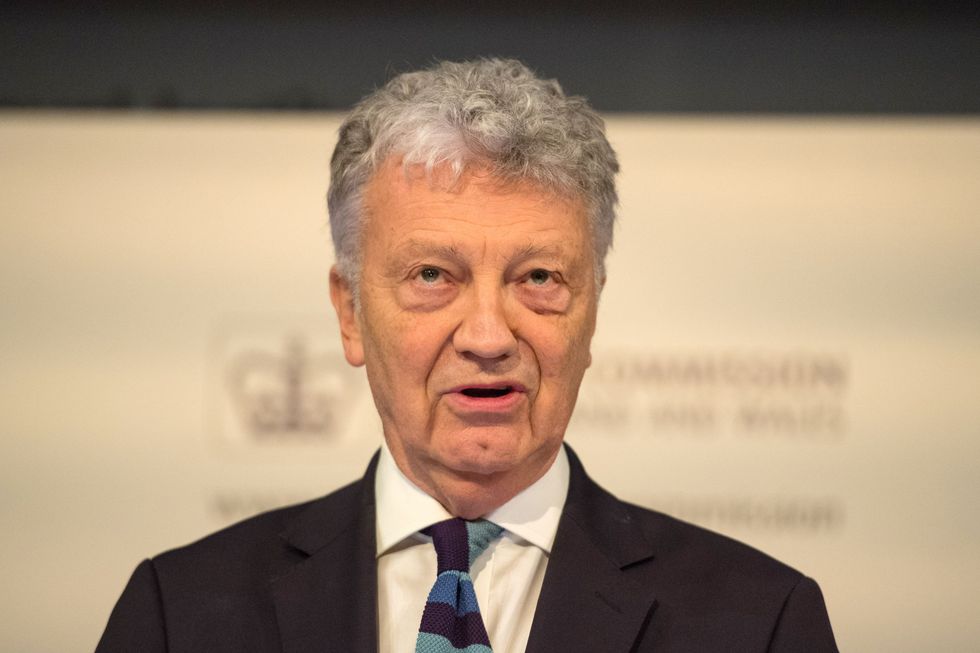
Extremists are exploiting the Middle East crisis to “hijack our democracy” and there is insufficient focus on Hamas in Britain, experts have warned, after the government was criticised for not improving the counter-extremism programme.
Sir William Shawcross, who published a major government review into Prevent last year, said the public had been left “at risk” after claiming that his key recommendations had been sidelined.
The former journalist said that the Home Office was failing to identify terrorist sympathisers through Prevent, and that risks had risen since the attack on Israel on October 7.
The Prevent duty expects public bodies, such as schools, nurseries, universities and hospitals, to identify individuals at risk of extremism so that authorities can intervene and stop any developments into terrorism.
Last year’s review by Sir William said that Prevent had “failed” to identify potential terrorists, paid insufficient attention to Islamist threats in favour of an inaccurately heightened focus on far-right terror, and that there was a “sense of lost purpose” in the duty.
Home Secretary James Cleverly on Tuesday said in a progress report that this purpose had been recovered, declaring that Prevent had been returned “to its core mission.”

He added: “The whole counter-terrorism system needs to continually evolve and adapt to the ever-changing threat from terrorism.
“Thanks to the work undertaken in response to [The Shawcross] review, we have a first-class Prevent programme that can play a central role in this effort.”
But Sir William hit back yesterday to say that progress was not complete and that “the glass is still only half full.”
He told the BBC that “the government has published a report saying that they have made some of those changes that I asked for, that I proposed - but not enough.”
He said that “the public is at risk” because the government had “ignored” some of his recommendations.
Sir William pointed in particular to Prevent needing to take further action with Hamas supporters after the October 7 attacks.
“There are unfortunately quite a lot of Hamas sympathisers and some operatives in this country,” Sir William said, adding: “Prevent and the police should have been working much harder against those Hamas.”
Counter-extremism researcher Kyle Orton told GB News: “In the Prevent Review, Shawcross documented that the research unit had done no work on Hamas for years, that the counter-ideology practitioners were not taking antisemitism seriously as a theme in extremism, and that Hamas and its ‘support network’ in Britain were getting insufficient attention.”
Orton added: “It would have taken longer than nine months to turn the ship around after so many years of neglecting the Hamas problem in Britain, but the government did less than its best on this, and even after October 7, despite Cleverly’s happy talk, the old habits remain.
“Hamas simply is not treated like other banned terrorist groups in Britain and the cause is clearly political bias - there is a pervasive sense in the counter-extremism bureaucracy that HAMAS is not as ideologically illegitimate and dangerous as, say, the Islamic State.”
Henry Jackson Society research fellow Dr Theo Zenou told GB News: “William Shawcross is right that more needs to be done to identify terrorist sympathisers in the UK. Islamist extremists exploit the Gaza war to spread an antisemitic agenda.
“Ever since October 7, we have seen an uptake in pro-Hamas propaganda on British streets and on social media.
"In recent months, we have also seen a deluge of threats made against MPs on both sides of the aisle if they voice support for Israel. Earlier this month, an MP announced he would step down because of threats he received, in part, over his support for Israel.
“It is obvious, therefore, that the government needs to do more to identify who exactly is issuing these threats and to stop them.
“We cannot let extremists hijack our democracy.”
from GB News https://ift.tt/b0CdfgU

Extremists are exploiting the Middle East crisis to “hijack our democracy” and there is insufficient focus on Hamas in Britain, experts have warned, after the government was criticised for not improving the counter-extremism programme.
Sir William Shawcross, who published a major government review into Prevent last year, said the public had been left “at risk” after claiming that his key recommendations had been sidelined.
The former journalist said that the Home Office was failing to identify terrorist sympathisers through Prevent, and that risks had risen since the attack on Israel on October 7.
The Prevent duty expects public bodies, such as schools, nurseries, universities and hospitals, to identify individuals at risk of extremism so that authorities can intervene and stop any developments into terrorism.
Last year’s review by Sir William said that Prevent had “failed” to identify potential terrorists, paid insufficient attention to Islamist threats in favour of an inaccurately heightened focus on far-right terror, and that there was a “sense of lost purpose” in the duty.
Home Secretary James Cleverly on Tuesday said in a progress report that this purpose had been recovered, declaring that Prevent had been returned “to its core mission.”

He added: “The whole counter-terrorism system needs to continually evolve and adapt to the ever-changing threat from terrorism.
“Thanks to the work undertaken in response to [The Shawcross] review, we have a first-class Prevent programme that can play a central role in this effort.”
But Sir William hit back yesterday to say that progress was not complete and that “the glass is still only half full.”
He told the BBC that “the government has published a report saying that they have made some of those changes that I asked for, that I proposed - but not enough.”
He said that “the public is at risk” because the government had “ignored” some of his recommendations.
Sir William pointed in particular to Prevent needing to take further action with Hamas supporters after the October 7 attacks.
“There are unfortunately quite a lot of Hamas sympathisers and some operatives in this country,” Sir William said, adding: “Prevent and the police should have been working much harder against those Hamas.”
Counter-extremism researcher Kyle Orton told GB News: “In the Prevent Review, Shawcross documented that the research unit had done no work on Hamas for years, that the counter-ideology practitioners were not taking antisemitism seriously as a theme in extremism, and that Hamas and its ‘support network’ in Britain were getting insufficient attention.”
Orton added: “It would have taken longer than nine months to turn the ship around after so many years of neglecting the Hamas problem in Britain, but the government did less than its best on this, and even after October 7, despite Cleverly’s happy talk, the old habits remain.
“Hamas simply is not treated like other banned terrorist groups in Britain and the cause is clearly political bias - there is a pervasive sense in the counter-extremism bureaucracy that HAMAS is not as ideologically illegitimate and dangerous as, say, the Islamic State.”
Henry Jackson Society research fellow Dr Theo Zenou told GB News: “William Shawcross is right that more needs to be done to identify terrorist sympathisers in the UK. Islamist extremists exploit the Gaza war to spread an antisemitic agenda.
“Ever since October 7, we have seen an uptake in pro-Hamas propaganda on British streets and on social media.
"In recent months, we have also seen a deluge of threats made against MPs on both sides of the aisle if they voice support for Israel. Earlier this month, an MP announced he would step down because of threats he received, in part, over his support for Israel.
“It is obvious, therefore, that the government needs to do more to identify who exactly is issuing these threats and to stop them.
“We cannot let extremists hijack our democracy.”



0 Comments
Don't share any link